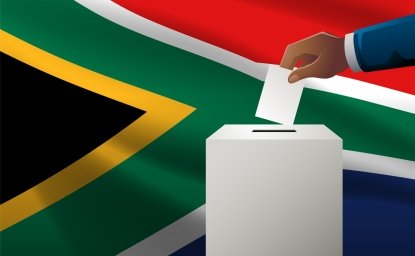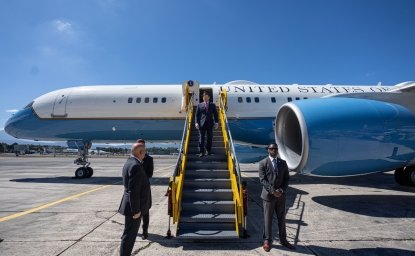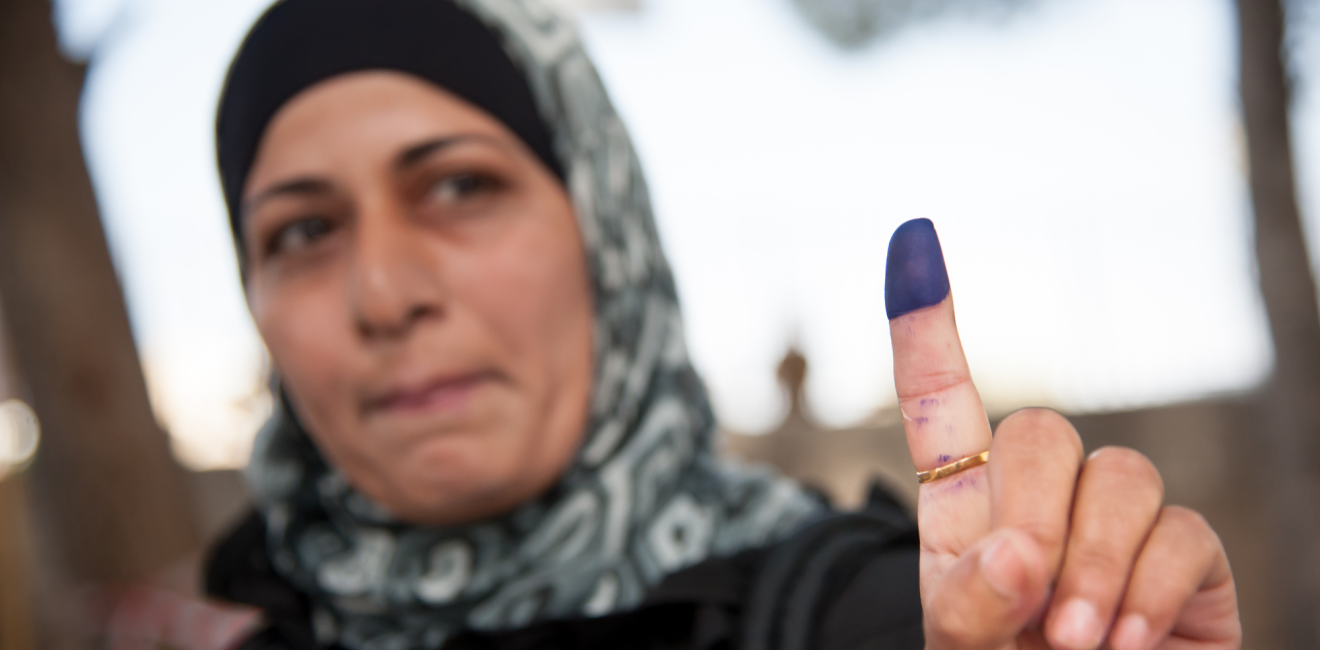The Biden Administration plans to make another push in the U.S. government’s periodic promotion of democracy worldwide. But to say conditions are not ripe in the Arab World for such a venture is an understatement. In fact, they are the worst they have been for decades.
Ten years after the 2011 “Arab Spring” uprisings, civil wars continue to smolder in Libya, Yemen, Syria, Iraq, and South Sudan. There is hardly a functional state or institutions left in Syria, Iraq, Sudan, and Lebanon. The military has returned with a vengeance in Egypt and kept the upper hand over the street in Algeria. Meanwhile the eight Arab monarchies have become more determined than ever to suppress activists be they liberals or Islamists.
They are petrified that street protests will break out at any time to trigger yet more uprisings as has happened in Lebanon, Iraq, Algeria, and Sudan over the past two years.
Arab governments in general are faced with terrible economic conditions only heightened by the current pandemic. They are petrified that street protests will break out at any time to trigger yet more uprisings as has happened in Lebanon, Iraq, Algeria, and Sudan over the past two years. Those in Algeria and Sudan ended by ousting their leaders, bringing the total number swept from power by street protests since 2011 to six. Activists have become so angry and disillusioned with their governments that in three countries—Iraq, Lebanon, and Algeria—they filled the streets last year calling for the overthrow of the entire political elite. In all three cases, however, the elites are still very much present.
The public disillusionment with democracy is reflected in the noticeable drop in election turnouts. In Algeria, the presidential elections of 2019, twice postponed due to lack of candidates, saw fewer than 40 percent of eligible voters participate, down five percent from five years earlier. In Tunisia, the turnout for the 2019 parliamentary elections was just 41 percent, down from 62 percent in the previous one. In Jordan, the turnout for similar elections last year was less than 30 percent, down from an already low 37 percent in 2016. In Egypt, it plunged from 54 percent in 2012 to just 28 percent last year for elections to the House of Representatives.
Now the monarchy in Saudi Arabia and the ascendant military regime in Egypt are diligently rooting out all green shoots of political activism of any kind.
The Lonesome Arab Spring
The 2011 uprisings have made conditions for democracy worse rather than better. Ethnic, religious and tribal fissures of Arab societies were blown wide open, and the conflicts between secularists, Islamists, social activists, and the military lept to the forefront. In Egypt, the secularists, ironically, were so frightened by the victory of the Muslim Brotherhood at the polls that they ended up colluding with the military to overturn the only truly democratic elections ever held in the region’s most populous country–resulting in the overthrow of President Mohammed Morsi. Now the monarchy in Saudi Arabia and the ascendant military regime in Egypt are diligently rooting out all green shoots of political activism of any kind.
The only new democracy to emerge from the 2011 Arab Spring was in Tunisia. It remains to this day a lonely outlier. The uprising did rightfully boast two major achievements. It ended fifty-five years of dictatorship and integrated Islamic parties into the political system for the first time since independence. But it also created two major new problems: political deadlocks and in the words of the World Bank “deep economic and financial challenges.”
Its electoral system guarantees no party will ever have a majority in parliament and thus require coalition governments of unlike-minded factions.
Tunisia’s uprising birthed a myriad of political parties constantly splintering and changing names and leaders. They have formed ever-changing coalition governments led by nine different prime ministers over the past ten years. Its electoral system guarantees no party will ever have a majority in parliament and thus require coalition governments of unlike-minded factions. None have been able to deal with a decade of deteriorating economic conditions—often described as the worst in Tunisia’s history—or a strident labor confederation, the UGTT, more powerful than any party or government.
It seems both the Tunisian political elite and populace have given up hope that their own parties will ever govern effectively. Last year, the parties turned to an independent bureaucrat, Hichem Mechichi, to serve as prime minister after Tunisians had elected in a landslide another independent, Kais Saied, a law professor, in the 2019 presidential elections.
The only other Arab countries which have multi-party systems (de jure or de facto) with any life at all are in the republics of Iraq and Lebanon and the monarchies of Kuwait, Morocco, and Jordan. In all cases, except perhaps Morocco, they are proving highly dysfunctional in the face of persistent political unrest and flailing economies.
The Republics
Iraq owes its current political woes not to a popular uprising but to the U.S. invasion of 2003 that overthrew the dictatorship of Saddam Hussein. It had six different prime ministers since adopting a new constitution in 2005 and partly copied Lebanon’s failed confessional political system, requiring the president, prime minister and speaker of parliament to be shared among the country’s three major ethnic or religious groups. This formula, constitutional in Lebanon, was the result of a political compromise in Iraq to help integrate the Sunnis and Kurds into the new Shiite-dominated political order. None of the governments over these years have been able to deal with rampant corruption, economic free fall, and state fragmentation caused by the semi-autonomous Kurdish Regional Government in the north.
Last year, it broke down completely as one crisis after another afflicted the country.
Democracy in Lebanon, such as it is, has long been in gridlock due partly to the Shia Hizbollah’s extra-parliamentary militia and parallel government coalition building. It is also partly due to its fragmenting confessional system assuring nineteen religious or ethnic parties a stake in the political system. Last year, it broke down completely as one crisis after another afflicted the country. These included the inability of the government to even collect garbage in Beirut, followed by a massive explosion of fertilizer in a port warehouse that obliterated a large section of the city and killed over 200 people.
Months of persistent street protests before the COVID-19 pandemic hit saw Lebanese calling for the entire political elite to resign. This led to the absence of a government since last August. The last prime minister, Saad Hariri, a stalwart of the old elite, was finally called back in October to form a new government. But on February 12, he announced he had found “no way out of the political crisis” and resigned again.
The Monarchies
The Arab parliamentary monarchies aren’t doing much better in their openings to democracy—all except Morocco it seems. Kuwait has long boasted the most vibrant politics of any with an elected parliament, being strong enough to topple one royal-dominated government after another. The ruling al-Sabah family doesn’t allow parties per se, but there are “blocs” in the legislature that amount to the same thing. They have the power to call in ministers for questioning, and parliament must approve the ruling family’s choice of the next ruler. Since 2011, the emir has dissolved parliament three times and the prime minister resigned or fired his cabinet four times. The latest prime minister, Sabah al-Khalid al-Sabah, resigned in January along with his cabinet “in light of current developments regarding the relations between the National Assembly and the government.” He was acting to abort a demand from 38 deputies that he come before parliament for questioning about the makeup of his proposed cabinet, which they considered “not reflective” of the outcome of parliamentary elections in December.
Jordan has long had a multi-party system, but the late King Hussein found it too much of a headache and suspended parliament in 1967, not to revive it until 1989. His son and current monarch King Abdullah II, who took power in 2000, maintained the democratic ‘tradition’. But Abdullah rules his realm tightly, particularly since the onset of the Arab Spring, which touched off civil wars in neighboring states and an influx of millions of Syrian and Iraqi refugees into the country. Abdullah craftily uses his prime minister as a shock absorber against continuing street protests over the controversial issue of the day—lack of jobs, high food prices, corruption, and now economic recession. Since 2011, he has gone through eight prime ministers and spent his political energies keeping the Muslim Brotherhood-affiliated opposition at bay in the country and parliament—so far successfully.
Only in Morocco has the Arab Spring resulted in some political progress.
Only in Morocco has the Arab Spring resulted in some political progress. There, King Mohammed VI has skillfully played the game of multi-party politics which has existed since independence in 1956. Within months of the first street protest, he pushed through a new constitution that has allowed the Islamic Party of Justice and Development (PJD), which won a plurality in both parliamentary elections since 2011, to nominate the prime minister. The king created his own party, which came in second in the 2016 parliamentary elections, as a counterbalance to the PJD. As a result, the PJD and king have learned to live and govern somewhat uneasily together, but the monarch maintains the upper hand.
Democracy Deserted?
The last U.S. democracy promotion campaign in the Arab World took place in far more propitious economic and political circumstances when President George W. Bush launched his “freedom agenda” back in 2002. He pressed Egypt and Saudi Arabia in particular to take the lead in holding free and fair elections. This provoked then Egyptian President Hosni Mubarak and the late Saudi King Abdullah (still crown prince at the time) to form an Arab “anti-democracy alliance” to counter Bush’s pro-democracy drive. It came to an abrupt end, anyway, after the militant anti-Israeli Hamas faction won a victory in the Palestinian elections held in 2006. Israel summarily canceled the elections with no pushback from Bush who had urged them in the first place.
Today’s massive disarray in Arab political affairs seems singularly unpropitious for a push by Biden to promote democracy. It is an Arab world ruled by frightened kings and shaky presidents who have turned to increased authoritarianism to stay in power. Calls for more democracy seem certain to fall on deliberately deaf ears.
The views expressed in these articles are those of the authors and do not reflect an official position of the Wilson Center.
This articles was revised at 10:40 AM on February 22, 2021
Author

Former Washington Post Middle East Correspondent

Middle East Program
The Wilson Center’s Middle East Program serves as a crucial resource for the policymaking community and beyond, providing analyses and research that helps inform US foreign policymaking, stimulates public debate, and expands knowledge about issues in the wider Middle East and North Africa (MENA) region. Read more

Explore More
Browse Insights & Analysis
Change in the Ballot Box in Africa

You Can’t Deport Your Way Out of the Problem

US Ties Its Hands in Fight Against Organized Crime

